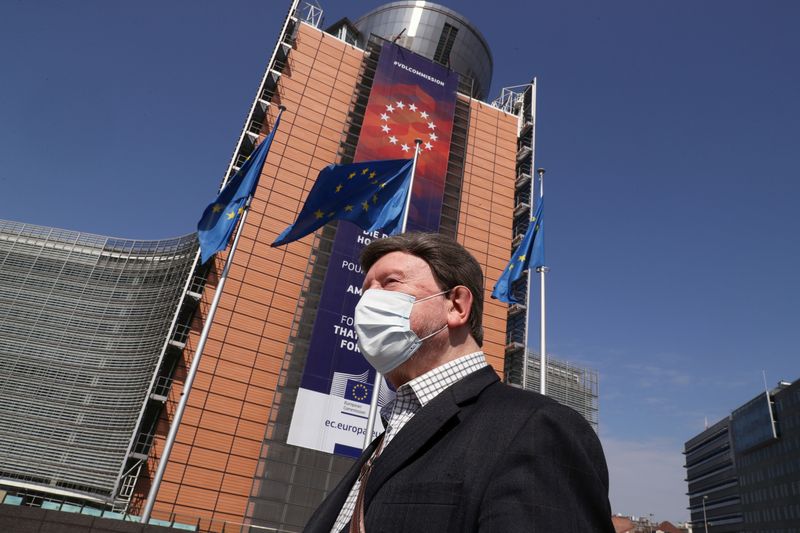By Jan Strupczewski and Gabriela Baczynska
BRUSSELS (Reuters) - European Union finance ministers agreed on Thursday on half-a-trillion euros worth of support for their coronavirus-battered economies after weeks of wrangling that exposed painful divisions in the bloc headed for a steep recession.
EU powerhouse Germany, as well as France, put their feet down to end opposition from the Netherlands over attaching economic conditions to emergency credit for governments weathering the impacts of the pandemic, and after assurances for Italy that the bloc would show solidarity.
But the agreement does not mention joint debt issuance to finance recovery - something Italy, France and Spain pushed strongly for but which is a red line for Germany, the Netherlands, Finland and Austria.
It only defers to the bloc's 27 national leaders whether "innovative financial instruments" should be used.
French Finance Minister Bruno Le Maire said Europe has agreed the most important economic plan in its history.
Earlier on Thursday Italian Prime Minister Giuseppe Conte warned that the EU's very existence would be under threat if it could not come together to combat the pandemic.
For weeks, EU member states have struggled to present a united front in the face of the pandemic, squabbling over money, medical equipment and drugs, border restrictions and trade curbs, amid fraught talks laying bare bitter divisions.
SOLIDARITY
German Chancellor Angela Merkel earlier in the day talked on the phone with Conte and Dutch Prime Minister Mark Rutte, paving the way for the agreement, which would now be taken up by the leaders in a joint videoconference in the coming days.
She said she and Conte agreed on the "urgent need for solidarity in Europe, which is going through one of its most difficult hours, if not the most difficult".
"Germany is ready for this solidarity and committed to it," she said.
Merkel made clear Berlin would not agree to jointly issued debt, but said other financial avenues were available.
Officials said Merkel also asked Rutte to stop blocking the deal, intended to provide a safety net for governments, companies and people against the deep recession the pandemic is expected to cause this year.
"The feeling in Germany is that everyone has done enough posturing for their domestic audiences by now. It's time to come together," one senior EU official in Brussels said.
Discussions have so far been fraught between the more fiscally conservative north and the indebted south, which has been hit hardest by the pandemic.
The package would bring the EU's total fiscal response to the epidemic to 3.2 trillion euros ($3.5 trillion), the biggest in the world.

It includes access to cheap credit from the euro zone bailout fund, the European Stability Mechanism (ESM), more guarantees for the European Investment Bank to step up lending to companies, and a scheme to subsidise wages so that firms can cut working hours, not jobs.